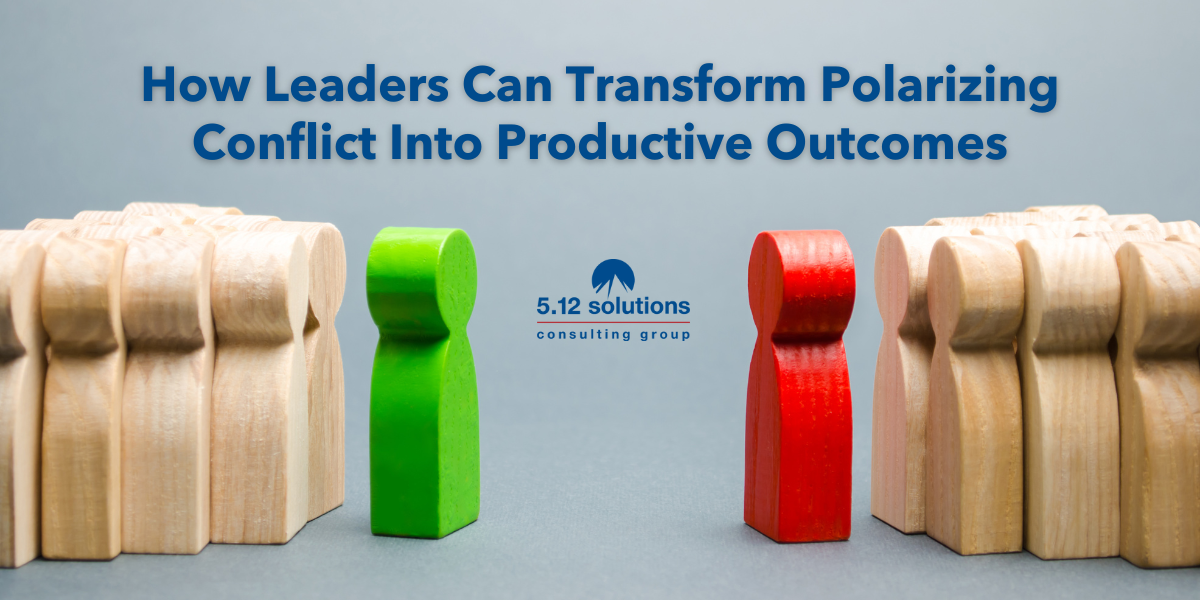Conflict within executive teams: is it a source of innovation – or a stumbling block to progress?
It depends.
How teams engage in conflict matters significantly.
Nice vs. Nasty: The Spectrum of Conflict
Productive conflict is a topic that we deal with often when we’re working with executive teams. Generally, teams tend to fall on a spectrum of conflict, culturally.
There is the culture of:
- nice, where avoidance is the norm
- nasty, where aggressive, in-your-face conflict is the norm
Likewise, how organizations approach issues can influence outcomes greatly:
- Some let issues fester, avoiding crucial discussions
- Others handle conflicts aggressively
Both extremes can impede effective decision-making and innovation. For most teams, the opportunity – and the challenge – is to find the right balance so that the right conversations get on the table at the right time.
Dr. Aftab Erfan on Transforming Conflict
This was the topic of a great conversation I had in a recent podcast with Dr. Aftab Erfan, Executive Director of the Morris J. Wosk Centre for Dialogue at Simon Fraser University. SFU is the only known facility in North America that is purpose-built for convening dialogue, working through conflict, and enabling resolution in diverse social settings, including workplaces.
Together, we explored how organizations can transform polarizing conflicts into productive outcomes. Here are some highlights of our conversation…
The Dynamics of Avoidance & Aggression
Dr. Erfan offered expert insights into the intricate dynamics of conflict within executive teams. Some take an avoidance approach, others an aggressive, “go at it” stance:
- Avoidance: Teams that tend to eschew conflict often miss out on addressing issues that are vital for the business.
- Aggression: Overly aggressive approaches to conflict can cultivate a toxic work environment, stifling collaboration and creativity.
“Conflict cannot survive without your participation.” – Wayne Dyer
3 Practical Strategies for Leaders to Handle Conflict
Dr. Erfan shared several practical strategies for leaders to handle conflicts more effectively. Let’s elaborate on each of these…
1. Foster Open Dialogue in the Workplace
Create an environment where team members feel safe to express their views openly and honestly.
Dr. Erfan mentioned some of the areas within our society that feel very divisive, whether it’s the wars of the world or whether it’s different points of view on climate, or the many other hot button political issues, etc. I wanted to know if it matters for leaders in the workplace to be aware of those more macro level trends? Or is it best to just focus on business?
She responded, “I think at the very least, it is helpful for leaders to have a general awareness or know where to look or where to call when these issues begin to touch the workplace…because I do feel like some of the alienation that (especially) minoritized groups are feeling in the workplace are coming from their leaders having no idea what they’re talking about.” Yet, “I don’t think it is productive or safe really, for us to be having super politicized conversations in every workplace.”
2. Implement Structured Processes to Resolve Conflict
Practice structured conflict resolution processes to ensure all perspectives are considered, and common ground is found.
Says Dr. Erfan, “The essence of any method of working through conflict is to try to structure the conversation a little bit so that we don’t fall into our usual patterns of escalation.
She shared a personal example of the indigenous conflict resolution method to the lands where she lived. Think of a simple circle. “You’re sitting around the circle and there’s a talking piece, and when you’re holding the talking piece, you speak. And when you’re not holding the talking piece, you don’t speak, you wait until it goes around and it comes back to you.
It’s a structure, it’s a liberating discipline. It’s a structure that allows us to be able to listen to each other and not jump onto each other’s point, which is the regular pattern of conflict that we go into and it leads to escalation…”
3. Develop Emotional Intelligence to Foster Growth
Build emotional intelligence to better manage and defuse conflicts, turning them into opportunities for growth and innovation.
Dr. Erfan does a lot of work around the inner qualities for leaders. I had to ask: What are some of those inner qualities that leaders need to develop to effectively manage and transform conflict within their teams?
One quality that might not pop into your mind first is humor. She continued, “I think the thing that is most helpful, especially when you have some form of conflict or when you have a lot of chaos, it’s just like a well-regulated system in the leader. Somebody who can hold their ground as things go left and right and back and forth, and is not threatened by emotion or by the strength of an opinion.”
Interestingly Dr. Erfan also shared this golden nugget of leadership wisdom, “I feel like the work on conflict has really helped me because often it’s like I’m having to take the different sides in myself just to develop patience and compassion for what is happening in the room.
In a way, I think I’m annoying because it’s like there isn’t very strong convictions about things as much as I used to have before. There’s this more nuance, and even though I think this, there’s a part of the other thing that I can agree with.
I think it makes it much more possible to stay regulated when there’s strong conflict in the room because I’m not threatened by the other thing. I also agree with the other thing…if that makes sense.”
Transforming Conflict into Productivity Starts With You
Most leaders know that effective conflict management is crucial for the success of executive teams – now more than ever before. By applying the simple strategies we discussed, leaders can turn conflicts into more productive conversations that ultimately drive innovation and better decision-making.
Listen to the full podcast to gain deeper insights and even more practical leadership advice on navigating conflict within your team.
What would it look like if you could transform your team’s conflict into more productive outcomes? Schedule an insight session with 512 Solutions to start on the path to enhance your leadership skills, all with our expert guidance. Click here to get started.

